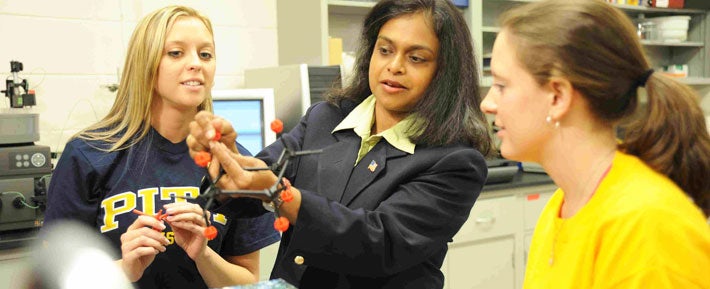
Pitt-Johnstown is responding to the urgent challenge faced by Pennsylvania, the nation, and our rapidly changing world for qualified candidates in the areas of science, technology, engineering, and mathematics (STEM).
The National Science Board and National Science Foundation estimate that the demand for scientists and engineers will increase by 400% by 2018. In Pennsylvania, the number of STEM-related job that will need to be filled by 2018 is nearly 315,000 (USAspending.gov). Since 2008, more than 1,300 high school students from our region have participated in the annual STEM Professions Day, an event created to advance the knowledge of STEM areas and promote interest in STEM-related careers.
These new programs include chemical engineering, civil engineering, computer engineering, electrical engineering, mechanical engineering, applied computer science, biochemistry, energy and earth resources, green chemistry, healthcare, and nursing.
Strategic efforts to increase STEM enrollment at Pitt-Johnstown have been very successful. In fact, enrollment in STEM majors at Pitt-Johnstown is increasing faster than the national average. This is due in large part to new programs have been developed at Pitt-Johnstown to prepare students for successful careers in high-demand STEM areas. These new programs include chemical engineering, civil engineering, computer engineering, electrical engineering, mechanical engineering, applied computer science, biochemistry, energy and earth resources, green chemistry, healthcare, and nursing.
While approximately 35% of college students nationwide were enrolled in STEM majors in 2010, nearly 50% of Pitt-Johnstown students were pursuing STEM-related degrees. Today, that number has grown to 56% at Pitt-Johnstown. Overall, enrollment in STEM majors at Pitt-Johnstown has increased by 29.7% since 2008..
Recently, Pitt-Johnstown partnered with the Windber Research Institute to create opportunities for WRI scientists and Pitt-Johnstown faculty and students to work collaboratively on research projects that will not only provide our students with real-world experience in STEM areas, but also enhance the quality of life in our region.
